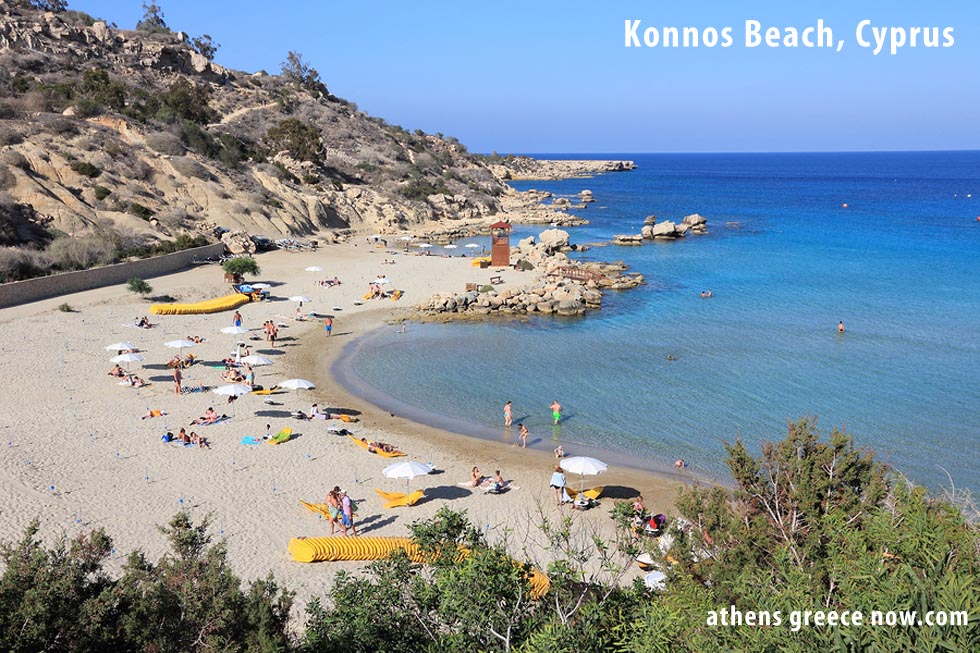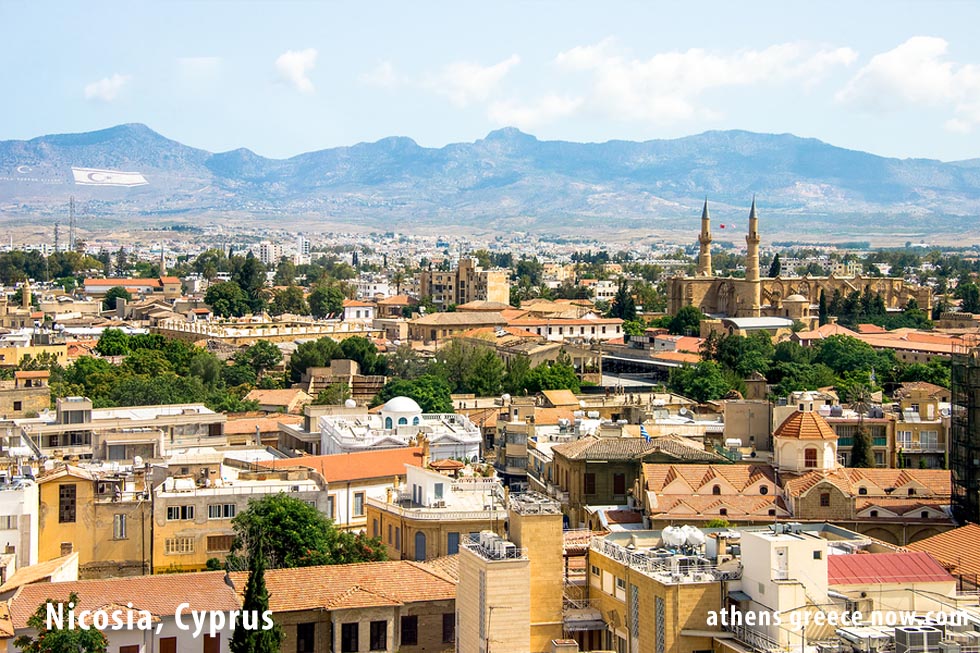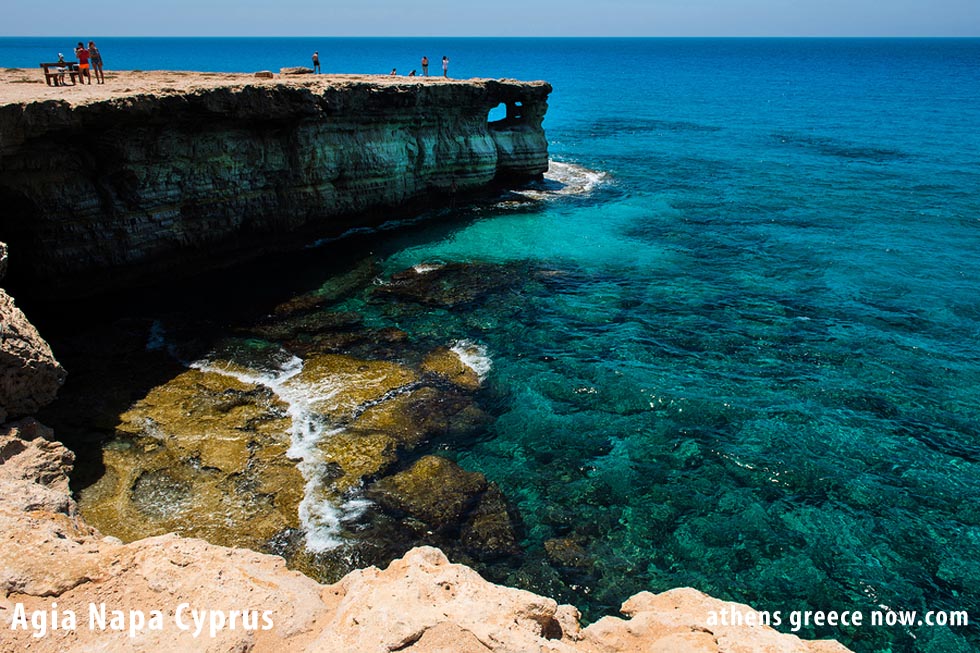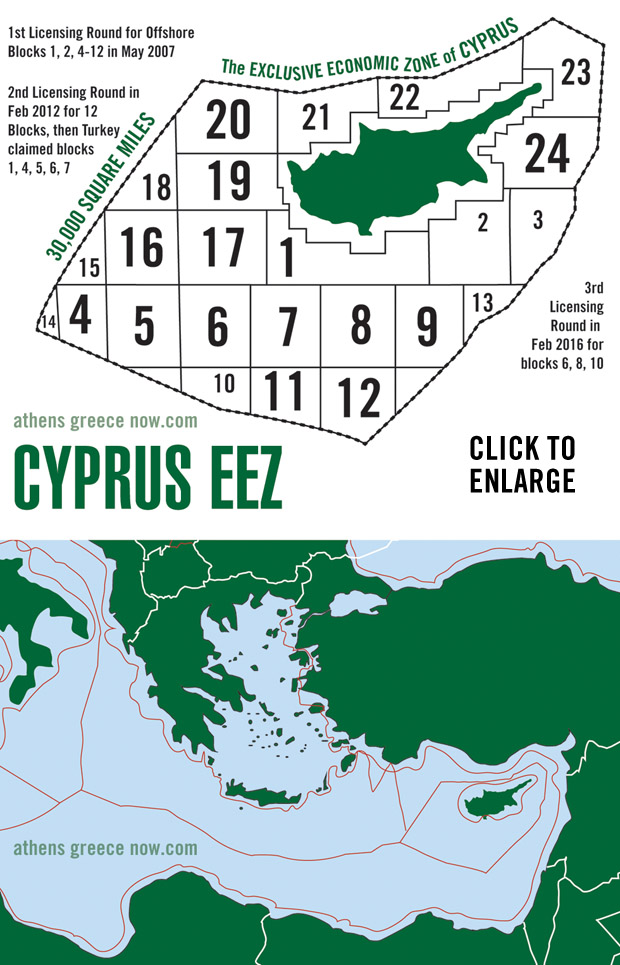Cyprus
Divided since 1974, and a regular source of contention (and negotiations) between Greece and Turkey
Officially called the Republic of Cyprus (the Turkish area is the Turkish Federated State of Cyprus, though this government is not recognized by any country except Turkey.) Only the Republic of Cyprus has official diplomatic recognition by international countries, including The European Union, and USA.
Recent History of Cyprus:1571 to 1878 - Ottoman Rule
1878 - Cyprus given over to Britain for administrative government control, though officially still under Turkish sovereignty. The declared British goals at this time was to prevent Russian encroachment over the disintegrating control of the Sultan in Istanbul with various Ottoman territories.
1914 - When Turkey and Britain became official adversaries with the onset of World War I, Britain officially annexes Cyprus.
1915 - Britain offers to transfer Cyprus to Greek control in exchange for Greek participation in a conflict between Serbia and Bulgaria. Greece doesn't pursue this bargain.
1923 - Turkey gives official recognition of British rule of Cyprus at the Treaty of Lausanne.
1925 - Cyprus declared a "Crown Colony."
1931 - Long-standing efforts using petitions from Greek Cypriots (for Enosis* with Greece) and counter-petitions by Turkish Cypriots (to prevent Enosis) lead to violent riots in Nicosia.
1947 - As part of British programs of creating self-government in colonial territories, British offers a similar program in Cyprus and it is refused, the rejection based upon the Cypriot goal of immediate Enosis with Greece.
1955 - Former Greek army Lieutenant Colonel Georgios Grivas (aka Dighenis), leads the National Organization of Cypriot Struggle (Ethniki Organosis Kipriakou Agonos; aka EOKA) and begins a campaign of guerrilla warfare against British rule.
1956 - A British offer of a program of self-government in Cyprus is again offered, but is rejected in favor of Enosis.
1957 - Cypriot ethnarch (meaning literally 'national' or ethnic 'leader') Archbishop Makarios III begins operating from Athens to organize for a Cypriot government if and when Britain leaves. Makarios had been exiled from Cyprus by the British in 1956. Simultaneously Greek and Turkish Cypriots (led by Fazıl Kucuk) begin to demand their respective governments to intervene. The Greeks pursue Enosis and the Turks want partition.
1959 - An agreement reached in Zurich between Greek and Turkish representatives sets in motion a series of compromises to lead toward an independent Republic in Cyprus.
1959 - In December Makarios is elected president and Kucuk is vice president. Their offices allow them to exercise veto prerogatives over Cypriot matters concerning defense, security, and foreign affairs.
1960 - Final agreements guarantee British sovereignty over their military bases at Akrotiri and at Dhekelia. The guarantors of Cyprus' national integrity is now jointly held by Turkey, Greece and Britain.
1960 - Following the various agreements, Britain announces a five-year program of financial help. Cyprus ascends to membership in the United Nations as an independent country.
1961 - Cyprus is admitted into the British Commonwealth (aka "British Commonwealth of Nations", an economic association of sovereign states comprising the United Kingdom with former British territories).
1963 - Amendment proposals to the earlier agreements lead to violence, and Nicosia ends up divided at the "Green Line" and British troops begin policing in order to reduce community violence.
1964 - The United Nations Security Council sends a multinational peacekeeping force.
1964 - Fighting in the Northwest area of Cyprus leads to Turkish war planes intervening in the fighting, and both Greek and Turkish army trainers are hidden on the island to train Cypriot forces for further conflict.
1967- Conflicts in the Northeast area of Cyprus lead to a threats from Ankara to invade unless Greek military influence is withdrawn. This is then ordered by the Junta now ruling Greece, and Greek forces are removed.
1968 - Makarios is reelected, but tension with other Cypriot leaders leads to assassination attempts in 1970 and 1973.
1974 - Makarios is deposed in a military coup backed by the Junta, and Greek Cypriot Nikos Sampson is made president. Five days later Turkey sends in troops who quickly occupy a third of the island.
1974 - When Konstantinos Karamanlis assumes the presidency in Greece following the collapse of the post-Junta government of Dimitrios Ioannidis, Nikos Sampson is replaced by Greek Cypriot Glafcos Clerides.
1974 - Makarios returns to assume presidency in December.
1975 - Turkish leadership declares "Turkish Federated State of Cyprus" with Rauf Denktash as president. Cyprus is now divided by what's called the "Atilla Line" which was the name of the Turkish military invasion plan.
1983 - Rauf Denktash announces the breakaway "Turkish Republic of Northern Cyprus" but only one nation recognizes this new state as legitimate: Turkey.
1977 - Makarios dies and is replaced by Spyros Kyprianou.
1988 - Spyros Kyprianou loses election for the presidency to George Vassiliou.
1990 - The Republic of Cyprus makes its first application for membership to the European Union (EU) and is blocked by supporters of Turkey.
1993 - Glafcos Clerides defeats George Vassiliou and is once again Cypriot president.
1998 - Glafcos Clerides is reelected.
2002 - An offer is made by the European Union for Cyrus to gain membership with a deadline condition that reunification talks between the Turkish and Greek sides conclude by March 2003. Otherwise, EU membership would then only be given to the "Greek side," The Republic of Cyprus.
2002 - Tassos Papadopoulos beats Clerides and is now president.
2002 - Turkish Federated State of Cyprus relaxes border rules and for the first time since the conflict of 1974, Greek and Turkish Cypriots can move across the breadth of the island.
2004 - A UN-backed reunification plan is rejected by the Greek Cypriot side but endorsed by the Turkish side.
2004 - The internationally recognized Cyprus joins the EU, after a UN peace plan was backed by Turkish Cypriots but rejected by Greek Cypriots. (List of countries joining EU in 2004: Cyprus, the Czech Republic, Estonia, Hungary, Latvia, Lithuania, Malta, Poland, Slovakia, Slovenia).
2008 - Papadopoulos is defeated by Cyprus' Communist party leader Dimitris Christofias.
2008 - Mehmet Ali Talat, leader of the Turkish Federated State of Cyprus, reaches agreement with Christofias to demilitarise an area known as Ledra Street in Nicosia.
2010 - Talat is defeated by Dervis Eroglu in elections in the Turkish Federated State of Cyprus, and though Eroglu was known for support of an independent Turkish state in northern Cyprus, he nonetheless continues the reunification talks with Christofias.
2011 - Economic crisis in the European Union leads to intensive pressures within the Cypriot banking system. Christofias orders austerity measures inacted, but while negotiating with the IMF/EU over a bail-out program, refuses required bank reform and privatization demands.
2013 - Christofias is replaced in the election cycle by Nicos Anastasiades, a centre-right candidate. Anastasiades immediately renews bail-out talks.
2013 - Anastasiades gets a bailout package of €10 billion (approximately $13 billion USD) in loans from the EU and the IMF. Cyprus participates by providing €7 billion (approx. $9 billion USD) through selling gold reserves, restructuring Cypriot banking and raising corporate taxes. Eventually Cyprus' contribution is raised to €13 billion.
2018 - On February 4 Nicos Anastasiades was relected for a second five year term as President.
*Enosis - Basically, a goal of "union" with Greece as part of Greek national sovereignty.
Links:
Related Link: The Junta in Greece
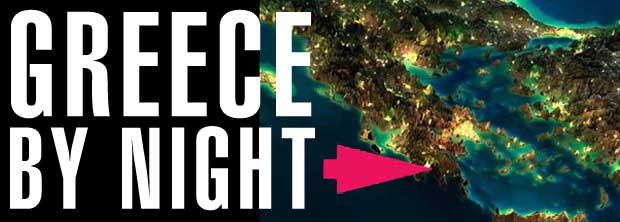


Greece's Golden Visa program
